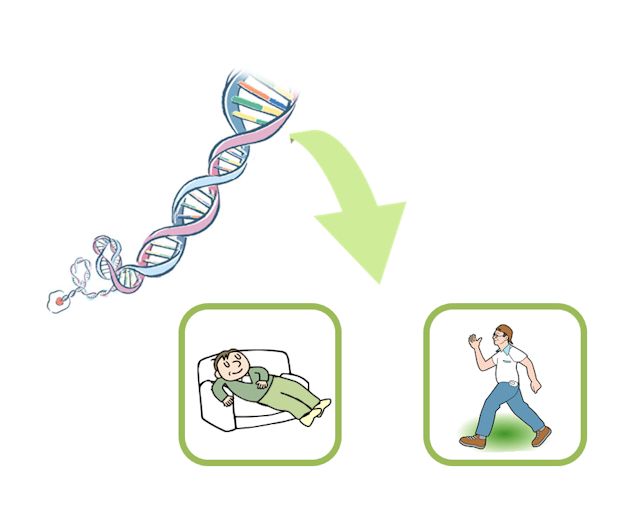The team of Professor Hiroshi Nose and Associate Professor Shizue Masuki of the Institute of Biomedical Sciences has found that genetic factors are involved in the ability of individuals to make exercise a habit, possibly via blood pressure regulation, which has recently been published in the journal of the American Physiological Society (J Appl Physiol 118, 595-603, 2015). They uncovered that subjects who had a specific genotype tended not to be able to continue a set exercise regime. Using this genetic information, however, such people can be instructed to periodically switch among a variety of exercises to continue habituation.
The team had earlier developed “Interval Walking training”, a method of exercise in which brisk walking and slow walking are repeated alternately for 3 minutes each. Next, they sought to identify the factors needed to continue Interval Walking training over the long term. They conducted the study with 696 participants (196 men and 500 women). The subjects were instructed to perform the brisk walking for 15 minutes at a time, for more than 4 days a week, for 22 months.
The results showed that 15% of the male participants who had 2 specific types of the DNA controlling blood pressure via gene expression of the vasopressin V1a receptor were significantly less likely to continue exercise. When people move their body, the brain signals for an increase in blood pressure to raise blood flow to the muscles. However, those possessing the particular genotypes exhibit a dysfunction in this mechanism, and presumptively halt exercise.
The team aims to advance its research on DNA genotypes among women in the near future.
J Appl Physiol 118, 595-603, 2015
The team had earlier developed “Interval Walking training”, a method of exercise in which brisk walking and slow walking are repeated alternately for 3 minutes each. Next, they sought to identify the factors needed to continue Interval Walking training over the long term. They conducted the study with 696 participants (196 men and 500 women). The subjects were instructed to perform the brisk walking for 15 minutes at a time, for more than 4 days a week, for 22 months.
The results showed that 15% of the male participants who had 2 specific types of the DNA controlling blood pressure via gene expression of the vasopressin V1a receptor were significantly less likely to continue exercise. When people move their body, the brain signals for an increase in blood pressure to raise blood flow to the muscles. However, those possessing the particular genotypes exhibit a dysfunction in this mechanism, and presumptively halt exercise.
The team aims to advance its research on DNA genotypes among women in the near future.
J Appl Physiol 118, 595-603, 2015


